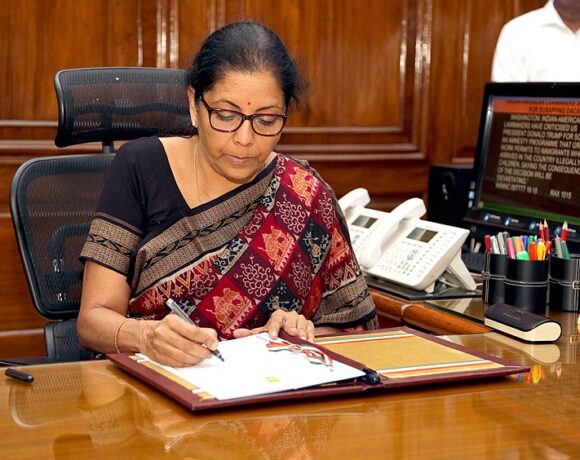Textile Duty Relief In Focus At Upcoming India-EU FTA Talks

The ninth round of Free Trade Agreement (FTA) negotiations between India and the European Union (EU) will reconvene on Monday, focusing on key issues such as duty concessions for Indian textiles in EU markets, according to sources familiar with the discussions.
India has been advocating for its labour-intensive textile and apparel sectors to be classified as non-tariff items in the ongoing talks. Currently, the EU imposes import duties ranging from 10-12% on these products, which places India at a competitive disadvantage compared to China, the EU’s leading supplier of textiles and apparel.
“The duty relief for Indian textile products will be a primary focus in the upcoming talks, scheduled to take place from 23 to 27 September,” said one of the sources, who requested anonymity due to the confidential nature of the negotiations.
These FTA discussions, which commenced in June 2022, have seen steady progress. In the eighth round held in June this year, both parties discussed 21 policy areas, ranging from carbon taxes and pesticide regulations to tariffs and services. Negotiators also tackled contentious issues such as the EU’s strict safety standards for agricultural products and pharmaceuticals, alongside high tariff barriers. Additional matters included India’s disputes at the World Trade Organization (WTO) concerning electronic products like mobile phones and optical instruments.
In the upcoming ninth round, the negotiations will span a 12-point agenda that covers a broad spectrum of topics, including deforestation, electric vehicles, sustainability, EU’s Carbon Border Adjustment Mechanism (CBAM) and sanitary and phytosanitary measures. Discussions will also address technical trade barriers, textile tariffs, services sector benefits and taxes on goods such as liquor, according to the another source.
India is reportedly pushing for relaxed CBAM regulations for its micro, small and medium enterprises (MSMEs) and seeking enhanced opportunities for its electric vehicle (EV) sector. The talks will also explore expanded access for India’s services industry, particularly for IT professionals, along with tariff reductions and stronger investment protections.
India’s exports to Europe have shown steady growth since FY21, recovering alongside the global economy post-pandemic. In FY24, India’s exports to Europe reached US$ 98.88 billion, up slightly from US$ 98.34 billion in the previous year. Imports also rose to US$ 95.77 billion, up from US$ 90.99 billion in FY23.
Ajay Srivastava, a former trade services official and founder of the Global Trade Research Initiative, emphasized the potential benefits of a comprehensive agreement. “A successful India-EU Broad-based Trade and Investment Agreement (BTIA) could create vast new trade and investment opportunities for both economies by reducing tariffs on a wide range of goods and services,” Srivastava said. However, he noted that challenges such as sustainability regulations, labour standards and tariff imbalances remain significant. A political commitment and pragmatic approach will be needed to overcome these barriers and solidify the agreement as a key element of the India-EU strategic economic partnership.















